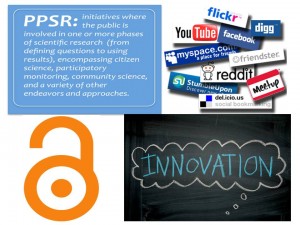 Clean Sky JTI Workshop and Information Day: The Clean Sky Joint Technology Initiative (JTI) will be holding a workshop on selected topics of the Clean Sky Call for Proposals 11 on 19 January and an information day on the Clean Sky Call for Proposals 11 on 20 January. Both events are in Brussels, with free participation, but registration is compulsory. The workshop on selected topics of the Call will focus on those topics which are critical to the progress of the programme or are complex. Applicants will have the opportunity to seek clarification on the list of selected topics. The information day on the Clean Sky Call for Proposals will include presentations on the topics included in the calls; discussions on the evaluation procedure and contractual agreements; and advice and tips on submitting a successful proposal. There will also be the opportunity to have a short meeting with Clean Sky Joint Undertaking staff during the information day.
Clean Sky JTI Workshop and Information Day: The Clean Sky Joint Technology Initiative (JTI) will be holding a workshop on selected topics of the Clean Sky Call for Proposals 11 on 19 January and an information day on the Clean Sky Call for Proposals 11 on 20 January. Both events are in Brussels, with free participation, but registration is compulsory. The workshop on selected topics of the Call will focus on those topics which are critical to the progress of the programme or are complex. Applicants will have the opportunity to seek clarification on the list of selected topics. The information day on the Clean Sky Call for Proposals will include presentations on the topics included in the calls; discussions on the evaluation procedure and contractual agreements; and advice and tips on submitting a successful proposal. There will also be the opportunity to have a short meeting with Clean Sky Joint Undertaking staff during the information day.
 2012 EU Research Forum Stakeholders’ Conference on Research and Social Innovation : The European Foundation Centre (EFC)’s Research Forum will hold its next Stakeholder’s Conference in Barcelona on 9-10 February 2012.The theme for the conference will be ‘Research and social innovation: the potential for European foundations to pave the way’. The conference will include sessions on:
2012 EU Research Forum Stakeholders’ Conference on Research and Social Innovation : The European Foundation Centre (EFC)’s Research Forum will hold its next Stakeholder’s Conference in Barcelona on 9-10 February 2012.The theme for the conference will be ‘Research and social innovation: the potential for European foundations to pave the way’. The conference will include sessions on:
- The potential for foundations to spearhead socially innovative research;
- The impact of social media and networks on research and social innovation;
- Open Access and the challenge of quality assurance; and
- Public participation in science: new modes of interaction.
Registration is on the European Foundation Centre’s website.






















 Dr. Ashraf cited on ‘Modest Fashion’ in The Guardian
Dr. Ashraf cited on ‘Modest Fashion’ in The Guardian NIHR-funded research launches website
NIHR-funded research launches website Academics write for newspaper in Nepal
Academics write for newspaper in Nepal New paper published on disability in women & girls
New paper published on disability in women & girls Global Consortium for Public Health Research 2025
Global Consortium for Public Health Research 2025 MSCA Postdoctoral Fellowships 2025 Call
MSCA Postdoctoral Fellowships 2025 Call ERC Advanced Grant 2025 Webinar
ERC Advanced Grant 2025 Webinar Horizon Europe Work Programme 2025 Published
Horizon Europe Work Programme 2025 Published Horizon Europe 2025 Work Programme pre-Published
Horizon Europe 2025 Work Programme pre-Published Update on UKRO services
Update on UKRO services European research project exploring use of ‘virtual twins’ to better manage metabolic associated fatty liver disease
European research project exploring use of ‘virtual twins’ to better manage metabolic associated fatty liver disease